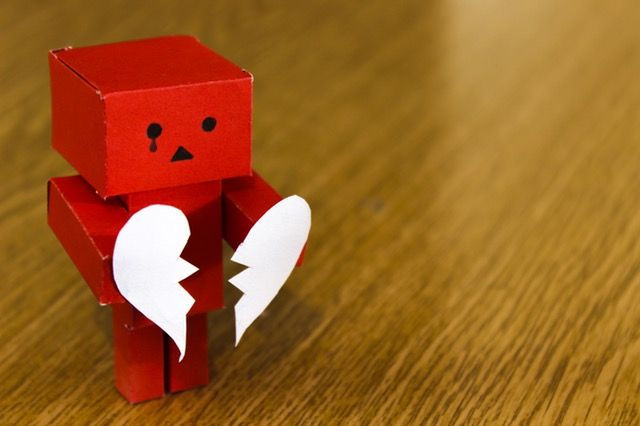The Best Way To Get Over Your Ex: Placebo Effect Can Ease Physical Pain Of A Broken Heart From A Breakup

Many of us have been there: we get dumped, spend hours crying, and medicate our feelings away with vices like binge eating, alcohol, or cigarettes. We're left with the physical pain of a broken heart thinking about, "how it used to be" while our friends say, "get over it." Now, researchers at the University of Colorado, Boulder suggest getting over our ex is as simple as convincing ourselves that we are — known as the placebo effect.
“Just the fact that you are doing something for yourself and engaging in something that gives you hope may have an impact,” said Tor Wager, senior author and a professor of psychology and neuroscience at CU Boulder, in a statement.
Read More: Broken Hearts Can Be A Matter Of Life And Death
Placebos can be powerful alternatives when it comes to healing physical pain. The effects arise from a conscious belief that what we're doing will lead to a speedy recovery. Previous research has found simply thinking a placebo will help alleviate pain will cause the brain to release more endorphins, or natural painkillers when it comes to clinical outcomes.
Wager, who has been researching the placebo effect for 15 years, sought to explore the influence of placebos on emotional pain from a breakup. In the study, published in the Journal of Neuroscience, the research team examined a group of 40 volunteers who experienced an "unwanted romantic breakup" within the last six months. Participants were asked to bring a photo of their ex and a photo of a same-gendered good friend to a brain-imaging lab where Wager and his colleagues would perform functional magnetic resonance imaging (fMRI) scans.
First, the participants were shown photos of their ex and asked to remember the breakup, followed by images of their friend during a fMRI scan. Meanwhile, the researchers administered physical pain via a hot stimulus on their left forearm. Researchers repeated these stimuli as participants rated how they felt on a scale of 1 (very bad) to 5 (very good) upon viewing the images as their brain activity was being tracked. fMRI scans revealed regions activated during physical and emotional pain were similar.
Wager stressed to the broken-hearted: “Know that your pain is real – neurochemically real.”
The researchers tested the placebo effect by giving the participants a nasal spray; half were told it was a “powerful analgesic effective in reducing emotional pain” and half were told it was a simple saline solution, according to the news release. fMRI scans were performed again along with the stimuli to see how the brain would respond when participants saw photos of their ex.
The findings revealed the placebo had a powerful effect on healing heartache via brain activity. The participants showed an increase in the dorsolateral prefrontal cortex — an area of the brain involved in regulating emotions. At the same time, areas of the brain linked to rejection showed less activity.
After taking the placebo, participants were happiest when the periaqueductal gray (PAG) area of the midbrain displayed higher levels of activity. PAG is known for regulating levels of opioids — painkilling brain chemicals — and dopamine, along with other feel-good neurotransmitters. Wager believes the placebo is what led to the release of these chemicals in the brain.
Read More: The Science Of Breaking Up
“The current view is that you have positive expectations and they influence activity in your prefrontal cortex, which in turn influences systems in your midbrain to generate neurochemical opioid or dopamine responses,” he said.
This study helps us acknowledge heartache is real; it comes with emotional and physical pain, but that pain can be alleviated. Wager and his colleagues propose one of the best ways to get over a breakup is to trick ourselves into getting over it. In other words, doing anything we believe will helps us get better will probably do just that.
Previous research affirms doing something new to enhance our sense of self will not only serve as a distraction, but help us get over our past by shifting the focus back to ourselves. A 2010 study found our identity gets intertwined with our partner's, which can leave us feeling incomplete after a breakup. Therefore, doing something new for ourselves may be enough to help heal a broken heart.
Bottom line: Believing we can get over someone is what we need to mend a broken heart.
Source: Koban L. Kross E, Woo CW et al. Frontal-brainstem pathways mediating placebo effects on social rejection. Journal of Neuroscience. 2017.
See Also:
The Psychology Behind Why We Engage In Post-Relationship Hookups
Published by Medicaldaily.com



























